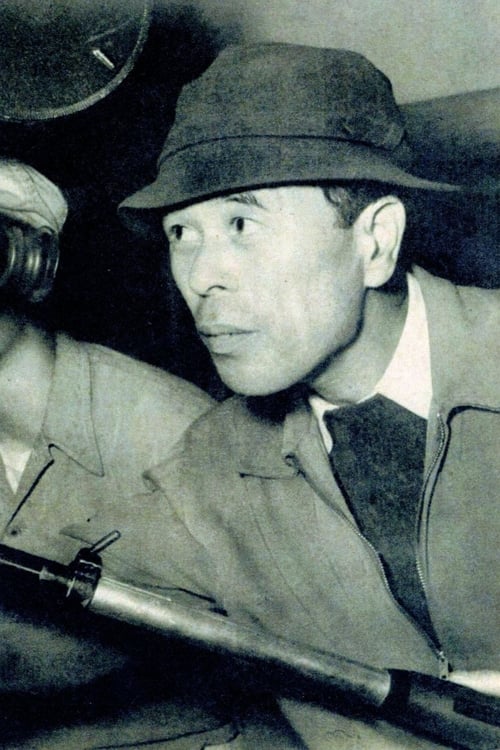Asakazu Nakai
Nascimento : 1901-08-29, Kobe, Hyōgo Prefecture, Japan
Morte : 1988-02-28
História
Asakazu Nakai (Japanese: 中井朝一; August 29, 1901 – February 28, 1988) was a Japanese cinematographer, born in Kobe. He worked on a dozen films with filmmaker Akira Kurosawa. He was nominated for the Academy Award for Best Cinematography for his work in the film Ran (1985). In 1950 he won the award for Best Cinematography at the Mainichi Film Concours for Stray Dog.

Director of Photography
No Japão medieval, um velho senhor da guerra se aposenta, entregando seu império a seus três filhos. No entanto, ele subestima amplamente como o novo poder irá corrompê-los. O senhor de guerra japonês Hidetori Ichimonji decide que chegou o momento de se aposentar e dividir seu feudo entre seus três filhos. Seus filhos mai velho e do meio, Taro e Jiro, concordam com sua decisão e prometem apoiá-lo nos dias restantes de aposentadoria. O filho mais novo, Saburo, discorda de todos eles argumentando que há pouca probabilidade dos três irmãos permanecerem unidos. Insultado pela impaciência de seu filho caçula, o senhor da guerra o expulsa. Quando o senhor da guerra começa sua aposentadoria, ele rapidamente percebe que seus dois filhos mais velhos são egoístas e não têm intenção de cumprir suas promessas. Isso leva à guerra e só o banido Saburo pode salvá-lo.
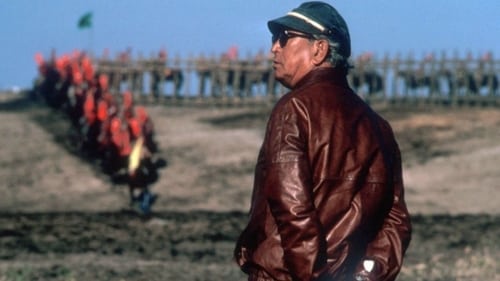
Self
In 1985, Chris Marker traveled to Japan to attend the filming of Ran, directed by Akira Kurosawa. Marker analyzes the progress of filming; the infinite patience of a team under the orders of a meticulous director down to the smallest detail; the antithetical mixture of the modern with the traditional; of the real with the fictitious; of life with cinema… and literature.
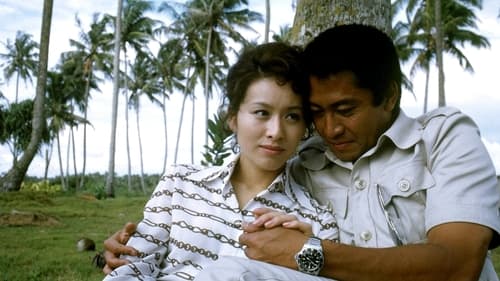
Director of Photography
A Japanese businessman is sent to Sri Lanka and meets a beautiful Japanese woman with a past. They befriend an old Japanese-Indian widow who has an estranged son in Japan.
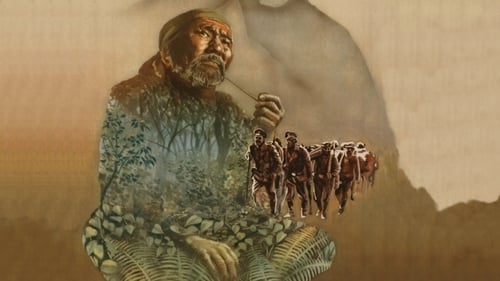
Director of Photography
Em 1902, uma expedição do exército russo vai explorar a Sibéria sob o comando do capitão Vladimir Arseniev. Ele faz amizade com Dersu Uzala, um caçador Goldi (Nanai), e o convida para ser o guia da expedição através da floresta até chegar no Lago Khanka. Ao longo da jornada, Arsentiev descobre que Dersu é um homem com uma alma bonita, e eles se tornam amigos íntimos. Quando termina a sua missão, Dersu diz adeus a Arseniev. Em 1907, o capitão Arseniev vai em outra expedição no rio Ussuri. Quando ele reencontra Dersu na floresta, o caçador solitário se junta a sua equipe e orienta o grupo. No entanto, ele está mais velho e tem problemas com sua visão, e o capitão Arseniev convida Dersu Uzala para viver com sua família em Khabarovsk. Mas o velho não se adapta ao estilo de vida urbano e decide voltar para a floresta. Em 1910, o capitão Arseniev é chamado para Korfovskaïa para identificar o corpo de um homem que tem seu cartão de visitas e pode ser Dersu Uzala.

Director of Photography
Richness, severity and pureness of love is beautifully and sentimentally depicted.

Director of Photography
A high-schooler involved in turn-of-the-decade student movements works to escape his comfort zone and apply himself.

Director of Photography
A Toho film featuring the comedy duo Konto 55, (コント55号), comprised of comedians Kinichi Hagimoto and Jiro Sakagami.

Director of Photography
Four sisters are all named after flowers. While the two youngest are married, the eldest two remain single, much to the annoyance of their long-suffering mother. The mother and her brother try various schemes to find husbands for them.

Director of Photography
No Japão do século 19 , em um hospital de caridade o Dr. Niide (Toshiro Mifune), um médico duro mas honrado, conduz um jovem estagiário sob sua orientação ao longo de inúmeros casos difíceis.
Ambientado em tempos feudais, médico novato, Yuzo Kayama, é enviado para uma enfermaria pobre esperando ser apenas passageiro, mas está furioso ao saber que ele deve ficar. Ele tenta provocar sua dispensa, mas é frustrado pelo médico-chefe "Barba Vermelha" (Toshiro Mifune), um homem cujos métodos são tão carinhosos quanto imprevisíveis.
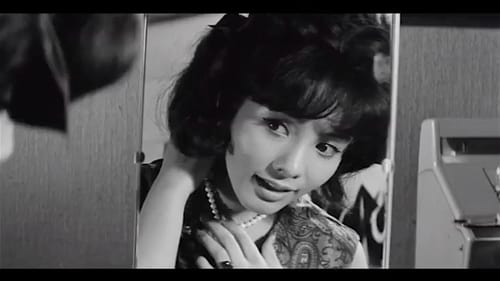
Director of Photography
Five swindle stories, taking place in five international cities: Tokyo, Japan ("Fumiko's Five Benefactors" by Hiromichi Horikawa); Amsterdam, The Netherlands ("A River of Diamonds" by Roman Polanski); Naples, Italy ("The Road Map" by Ugo Gregoretti); Paris, France ("The Man Who Sold the Eiffel Tower" by Claude Chabrol); and Marrakesh, Morocco ("The Confidence Man" by Jean-Luc Godard). Godard's segment was not included in the original French cinema release, and Polanski's segment was not included on the 2016 home disc release.
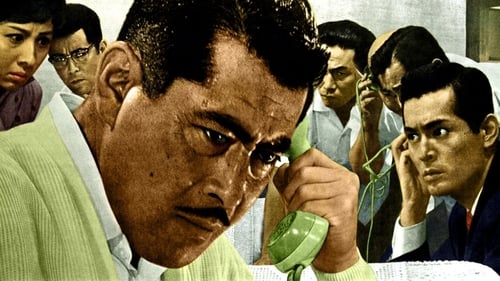
Director of Photography
Um executivo de uma empresa de calçados torna-se vítima de extorsão quando o filho de seu motorista é sequestrado e pedem resgate.
O executivo Gondo (Toshirô Mifune) hipoteca tudo o que tem na tentativa de assumir a Companhia Nacional de Sapatos, para manter a empresa fora das mãos dos outros executivos incompetentes e gananciosos. Contudo, o mesmo dinheiro que ele arrecada pode pagar o resgate que possivelmente irá salvara vida de uma criança, levando o executivo a tomar decisões extremas e elaborar procedimentos policiais. A resolução desse dilema - a perda certa da empresa vs a perda provável da criança - cria um drama distinto, e um elaborado procedimento de polícia cria um segundo. (e 12 - Estimado 12 Anos)
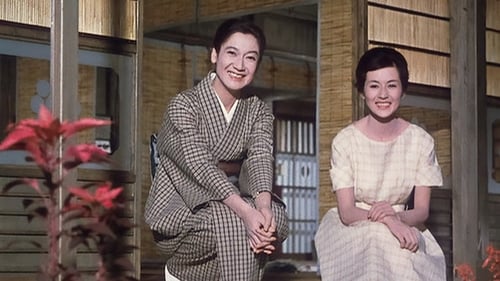
Director of Photography
A família de um senhor que dirige uma pequena fábrica de saquê começa a preocupar-se com as suas finanças e a sua saúde depois que descobrem que visita uma velha amante dos tempos da sua juventude. Uma das combinações mais habilmente moduladas de comédia e tragédia de Ozu.
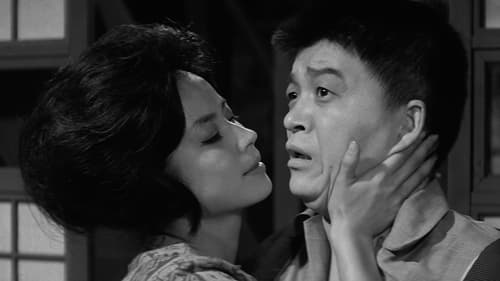
Director of Photography
In the late 1950's prostitution was banned in Japan and if a woman was found exercising this profession they were sent to a reformatory. This is a story of one of these brave women Kuniko who is released from the reformatory and tries to build a new life.

Cinematography
Starring Akira Takarada as a lightweight boxing champion.

Director of Photography
Tatsuya Nakadai plays a scheming low-level executive who plays labor against management and uses anyone he can to further his career in this moral drama. When things get too hot, he bails and goes to work for a prominent politician (Koreya Senda). Soon he has impregnated the daughter (Yoko Tsukasa) of his boss, but he figures marriage will solve his current problems. His happiness is short-lived when he is stalked by a union radical he once double-crossed who now seeks vengeance.

Director of Photography
Suspense drama about a married salaryman whose affair with one of his co-workers is compromised when, returning from a clandestine meeting with his lover, he runs into a neighbor who is later accused of murder. Questioned by police about the neighbor, and blackmailed by his lover's neighbor, the salaryman's lies lead him on a path to destruction.
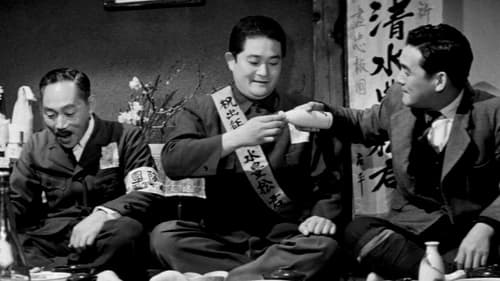
Cinematography
On a post-war peaceful day in Japan, Toyomatsu Shimizu, a barber as well as a good father and husband, is suddenly arrested by the Prefectural Police as a war criminal and sued for murder.

Director of Photography
Ryuta and Mineo Komatsu are brothers, both yakuza (gangsters). Mineo, although complicit in crime, even murder, wants out of the gangster life, hoping to become a successful singer instead. Ryuta loves his brother, but Mineo's possible defection presents problems for the gang, and Ryuta realizes he must kill his brother if he wants to survive.

Director of Photography
Ultra-perky model likes single freedom but feels ryosai kenbo ("good wife, wise mother") pressure, exemplified by her bored-to-tears sister.

Director of Photography
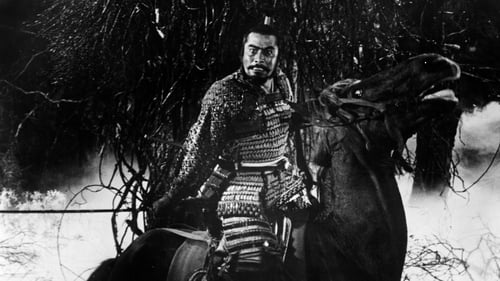
Director of Photography
Japão, século XVI. As guerras civis sacodem o país. Dois valentes samurais, os generais Washizu Taketori (Toshirō Mifune) e Miki (Minoru Chiaki), regressam aos seus domínios depois de uma batalha vitoriosa. No caminho, uma misteriosa senhora profetizao futuro de Washizu: o guerreiro se converterá no Senhor do Castelo do Norte. A partir deste fato Washizu, auxiliado por sua esposa Asaji Isuzu Yamada, se vê imerso numa trágica e sangrenta luta pelo poder.
Trono Manchado de Sangue (蜘蛛巣城, Kumonosu-jō?, literalmente "Castelo Teia de Aranha") é um filme japonês de 1957 dirigido por Akira Kurosawa, que transpôs a obra Macbeth de William Shakespeare para o Período Sengoku japonês (séc. XV - XVI).
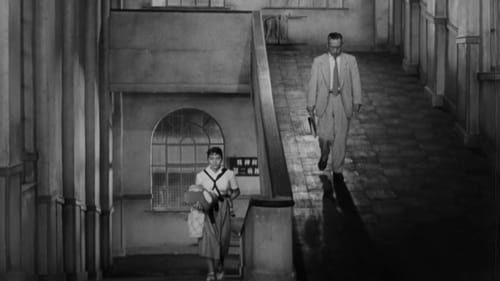
Director of Photography
Kiichi Nakajima, um idoso proprietário de fundição, convencido de que o Japão será afetado por uma guerra nuclear iminente, resolve transferir sua família para a segurança no Brasil. Sua família decide que seja declarado incompetente e o Dr. Harada, um conselheiro do Tribunal Doméstico, tenta arbitrar. (e 12 - Estimado 12 Anos)
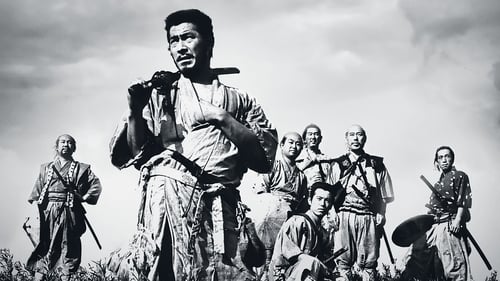
Director of Photography
No século XVI, durante a era Sengoku, quando os poderosos samurais de outrora estavam com os dias contados, pois eram agora desprezados pelos seus aristocráticos senhores. Kambei (Takashi Shimura), um guerreiro veterano sem dinheiro, chega em uma aldeia indefesa que foi saqueada repetidamente por ladrões assassinos. Os moradores do vilarejo pedem sua ajuda, fazendo com que Kambei recrute seis outros ronins (samurais sem mestre), que concordam em ensinar os habitantes como devem se defender em troca de comida. Os aldeões dão boas-vindas aos guerreiros e algumas relações começam. Katsushiro (Ko Kimura) se apaixona por uma das mulheres locais, embora os outros ronins mantenham distância dos camponeses. O último dos guerreiros que chega é Kikuchio (Toshiro Mifune), que finge estar qualificado mas na realidade é o filho de um camponês que almeja aceitação.

Director of Photography
A math teacher loses his job while falling in love with a local girl.

Director of Photography
A married couple looking for an apartment move in with the husband's co-worker, a widower. The husband becomes jealous of the widower and his wife.
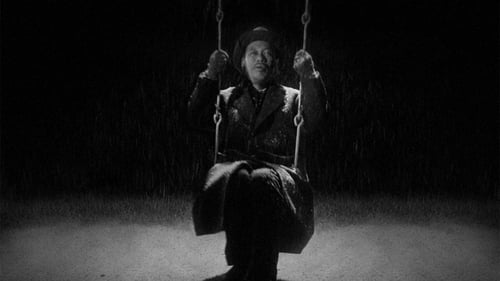
Director of Photography
Burocrata de longa data, que não liga para nada que não o interessa, descobre que está com câncer. Decide, então, construir um playground em seu bairro, tentando descobrir um sentido para sua vida.

Cinematography
Ikeuchi was captain of the K - University ice hockey team. The daughter Shikotsuko of Ginza 's western restaurant "Piccolo" was also a female student at K University and was a figure player. They had a dream of being dispatched to Oslo in the Olympic Games and were struggling in each way. Mizuno who runs a sports equipment store in Ginza, showed the geisha by guiding the junior's Ikeuchi and others to the shop of Shimbashi one day.

Director of Photography
The troubled relationship between a writer and his ballet teacher wife, who has for years loved another man, finally leads to the breakup of the family.

Cinematography
Wataru Naohiko who has the prosecutor general as his father became a young composer and its symphony "saint" invoked the world echoed. But his disciple Uchiyama and his best friend prosecutor Daisuke Toki accused his music as a sesame of pause-only technique, not a truly heart-hungry art.
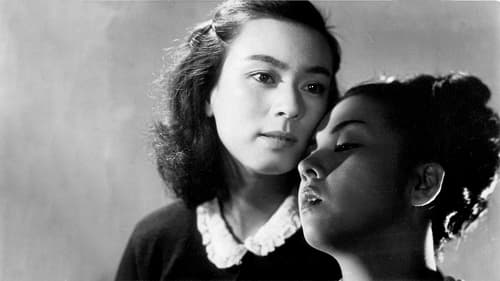
Director of Photography
Clothes of Deception initiated Yoshimura’s most characteristic vein. This geisha story is often described as a loose remake of Mizoguchi’s pre-war masterpiece Sisters of Gion (1936), but this is inexact. Whereas in Mizoguchi’s study of two sisters, both women had been geisha, in Yoshimura’s film only Kimicho (Kyo Machiko) is, while her sister works in the Kyoto tourist office. Juxtaposing a traditional Kyoto profession with a modern one, Yoshimura shows how life in the old capital was changing in the wake of wider transformations in Japanese society.
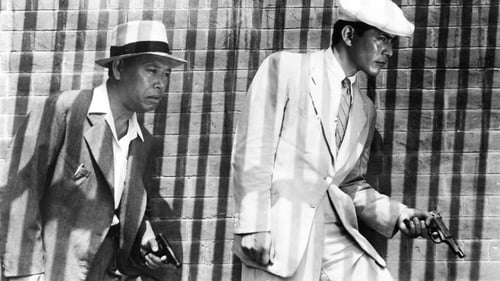
Director of Photography
Murukami, um jovem investigador de homicídios, é roubado em um ônibus e perde sua pistola. Ele começa uma busca insana atrás de sua preciosa arma, sem sucesso, até receber a ajuda de um sábio e mais experiente detetive chamado Sato. Clássico noir do mestre Akira Kurosawa, que redefiniu o padrão de filmes policiais japoneses. (e 12 - Estimado 12 Anos)

Director of Photography
Continuation of The Blue Mountains: Part I. Released a week later.

Director of Photography
Teacher Yukiko finds herself in opposition to conservative faculty and villagers after defending a student for being in a relationship with a young man from Tokyo.
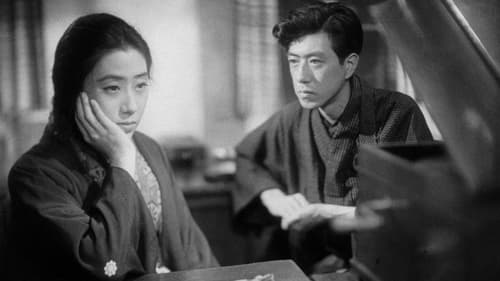
Director of Photography
Sumako, a country girl, becomes a great actress with the help of Hogetsu,a scholar who brought some of European realism to the Japan's stage. The relationship leads to the end of his marriage and the breakup of his Arts Society. This is another version of Kenji Mizoguchi's film "The Love of Sumako the Actress" ("Joyû Sumako no koi"), from the same year. Both tells the story of the famous actress Sumako Mitsui (1886-1919), considered the first great modern theater actress in Japan. Mizoguchi himself is said to have preferred Kinugasa's version.
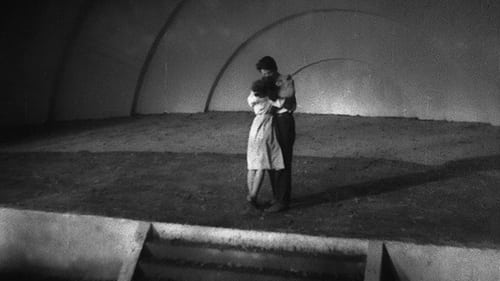
Director of Photography
Yuzo and his fiancée Masako spend their Sunday afternoon together, trying to have a good time on just thirty-five yen. They manage to have many small adventures, especially because Masako's optimism and belief in dreams is able to lift Yuzo from his realistic despair.
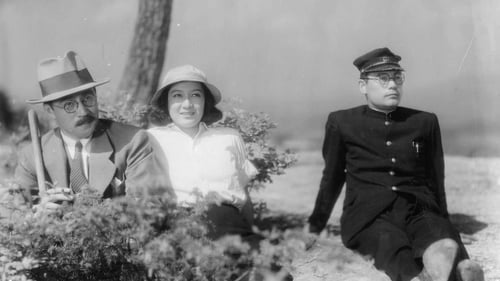
Director of Photography
Yukie, a filha bem-educada de um professor universitário, fica chocada quando o seu pai é dispensado do seu cargo pelos seus ensinamentos políticos e ainda mais quando o seu amante, um aluno do seu pai, é preso e executado como espião. Ela decide deixar Kyoto para viver com os pais do rapaz na aldeia camponesa. Mas a vida ainda tem muitas lições para ela... (e 12 - Estimado 12 Anos)

Director of Photography
1946 Toho film directed by Kiyoshi Saeki
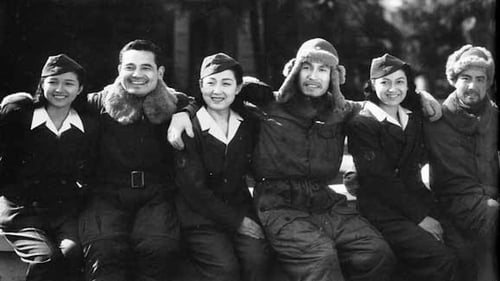
Director of Photography
The story of an airport and its air traffic control crew in a remote and northern Japanese town. Three of the air traffic controllers are female with one of them working with her dead fiancé's sister. The engaged man had gone to war and never returned.
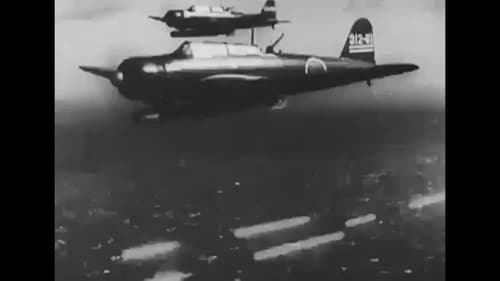
Director of Photography
Three IJN flyers Mikami (Susumu Fujita), Kawakami (Masayuki Mori) and Murakami (Akitake Kono) are good friends, and they are all renowned for their torpedo techniques. Mikami is posted as a staff officer at a base on an island in the Pacific. Kawakami and Murakami later joins him as the base squardron is reinforced. The enemy task force approaches the island and all three of them attack the fleet, killing themselves in the process.

Director of Photography

Director of Photography
A self-absorbed young actor humiliates an elderly Noh performer, who then commits suicide. His act of cruelty compels his father to disown him, leading the once promising actor to a life on the streets. But his desire to win back the respect of his father and the affection of the dead actor's daughter pushes him toward a more noble existence. Naruse employed a delicately structured mise-en-scene in this family melodrama, which evokes the work of Josef von Sternberg.
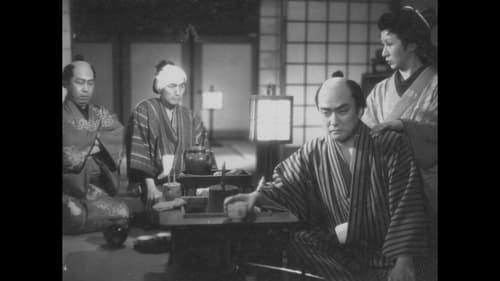
Director of Photography
A jidaigeki film on Banzuiin Chōbei produced in 1940 and directed by Yasuki Chiba.

Cinematography
Hideko, a young Baseball fan, determined to cheer for her favourite baseball team by creating a new song for them.

Cinematography
When Kaoru's sister-in-law Miyoko arrives at the family home, tender feelings start to grow between the two. However, the initial happiness that Kaoru finds in the company of her beautiful sister-in-law is frustrated by her brother Mitsuo, Miyoko's husband, who intervenes in their budding passion. Full of unspoken words, deeply suggestive mise-en-scène, and forbidden glances, Fukujuso is a compelling melodrama that surprises us with its potent homoeroticism, especially considering its year of production.

Director of Photography
When Kaoru's sister-in-law Miyoko arrives at the family home, tender feelings start to grow between the two. However, the initial happiness that Kaoru finds in the company of her beautiful sister-in-law is frustrated by her brother Mitsuo, Miyoko's husband, who intervenes in their budding passion. Full of unspoken words, deeply suggestive mise-en-scène, and forbidden glances, Fukujuso is a compelling melodrama that surprises us with its potent homoeroticism, especially considering its year of production.
